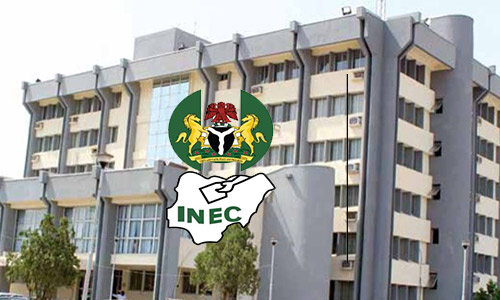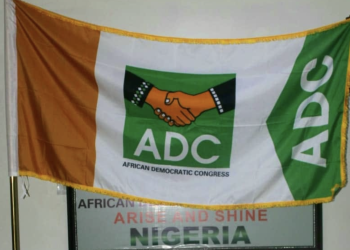As part of efforts to provide level playing field and prevent undue advantage to the ruling party, stakeholders have canvassed for tougher measures on political parties or candidates that violate the provisions of the electoral act on early campaign.
In his opening remarks, at a Roundtable on ‘The Challenges of Premature Political Campaign’ which took place on Wednesday at the Electoral Institute in Abuja, Chairman of the Independent National Electoral Commission (INEC) Prof. Mahmood Yakubu express worry that political parties disregard the provisions of the electoral act and embark on political campaigns before the stipulated period.
According to the Electoral Act, campaigns commence 150 days before an election and closes 24 hours before the election.
The INEC boss said that the problem of early campaign in Nigeria is not new.
“The seeming inability of the Commission and other regulatory agencies to deal with the menace within the ambit of the existing electoral legal framework calls for deep reflection.
“It is in this context that the Commission considered it appropriate to convene this meeting in which legislators, leaders of political parties, civil society organisations, experts, practitioners and regulators will brainstorm on the way forward”.
He lamented that the existing laws do not provide sanctions on early campaign.
According to him, “Nigerians expect INEC, as registrar and regulator of political parties, to act in the face of the brazen breach of the law on early campaign.
“However, the major challenge for the Commission is the law itself.
“Sections 94(2) of the Electoral Act 2022 imposes sanctions, albeit mild (a maximum amount of N500,000 on conviction), on any political party or a person acting on its behalf who engaged in campaigns 24 hours before polling day. However, there is no sanction whatsoever concerning breaches for campaigns earlier than 150 days to an election. Here lies the challenge for the Commission in dealing with early campaign by political parties, prospective candidates and their supporters”.
In his keynote address, former INEC Chairman Prof. Attahiru Jega said that to protect the integrity of the electoral process, most electoral systems require campaigns to be conducted according to the rules and regulations provided in the electoral legal framework; with due respect to the calendar of the elections; respecting the right and freedom of other parties to organize and campaign and reach out to the voters; respecting the election managers and not interfering with the performance of their duties; and using the official complaint process and the legal system for appeals.
He despite the provisions of the law, “premature campaigning has remained inadequately regulated and has become increasingly widespread, characterized mainly by the display of posters featuring politicians, across political parties, but especially of incumbents, at both federal and state levels, literally ‘jumping the gun’, some two years before the official election/campaign period. Many, if not most of these, are what can be termed as “third-party” campaigns, ostensibly carried out by candidates’ support groups, with dubious financing, most likely in crass violation of campaign financing legislations”.
Jega stressed the need to deal with political parties and individuals the flout the campaign time-table.
“All election campaign offences, especially premature campaign offences, should be carefully defined, stiff penalties specified, and strictly applied where applicable.
“All candidates and their parties, and especially incumbent office holders and their political parties, should be vicariously held responsible and penalized for premature campaigns for them by third-parties
“EFCC and ICPC should pay special attention to Third-party campaigners and thoroughly interrogate their sources of funding.
“In determining whether candidates and parties expenditures fall within approved limits, the estimated/determined expenditure by a third-party campaigner for the candidate/party should be taken into consideration.
“The EMBs (INEC and SIECs) must be made to work closely and collaboratively to ensure appropriate imposition of sanctions and penalties where appropriate.
“The recommendation for the establishment of Elections Offences Commission and Tribunal has become even more urgent important for consideration, and should be addressed in the next/current round of electoral reforms before the 2027 elections”.
He said electoral managers and security agencies must be recognize that unscrupulous or dubious political finance could easily be used to prosecute premature campaigns.
“Civil Society organizations, therefore, need to forge/strengthen alliances for credible elections monitor electoral offences generally and use of illicit funds in all aspects of the electoral process,” he said.
In his goodwill message, Chairman House Committee on Election Matters Hon. Adebayo Baolgun questioned why campaigns should be put on a time-frame.
“Election is now round the clock due to off-season elections. Everyday period politicians commission projects, organize town hall meetings which are forms of campaign. On the social media, campaigns go on every day.
“Sometimes supporters erect billboards for candidates without his knowledge. With all these development, will the politician of party be held liable? Is it necessary to have a time frame to start campaigning” he asked?
Present at the event were the Chairman of the occasion Prof. Abdullahi Abdu Zuru, Director General Advertising Regulatory Council of Nigerian (ARCON) Dr. Olalekan Fadolapo, Executive Secretary Broadcasting Organisation of Nigerian (BON) Dr. Yemisi Bamgbose, Chairman Interparty Advisory Council of Nigeria Dr. Yusuf Dantille, representative of the Nigeria Bar Association (NBA) and the Nigerian Police among other stakeholders.









